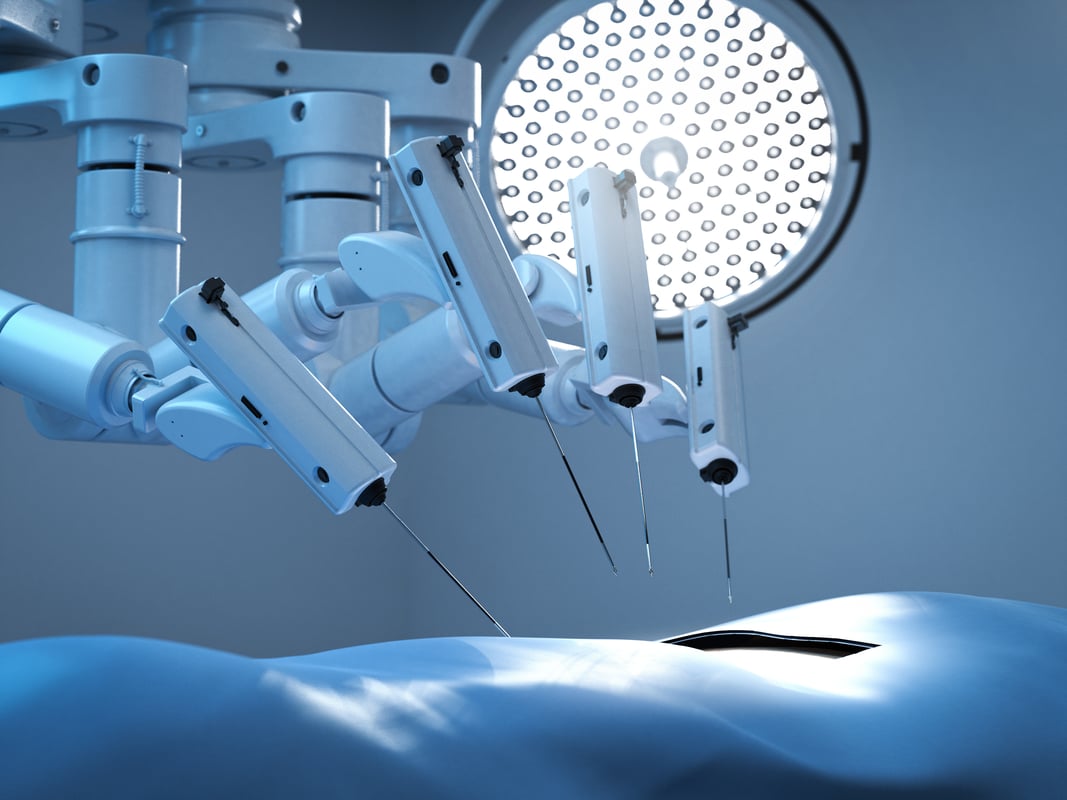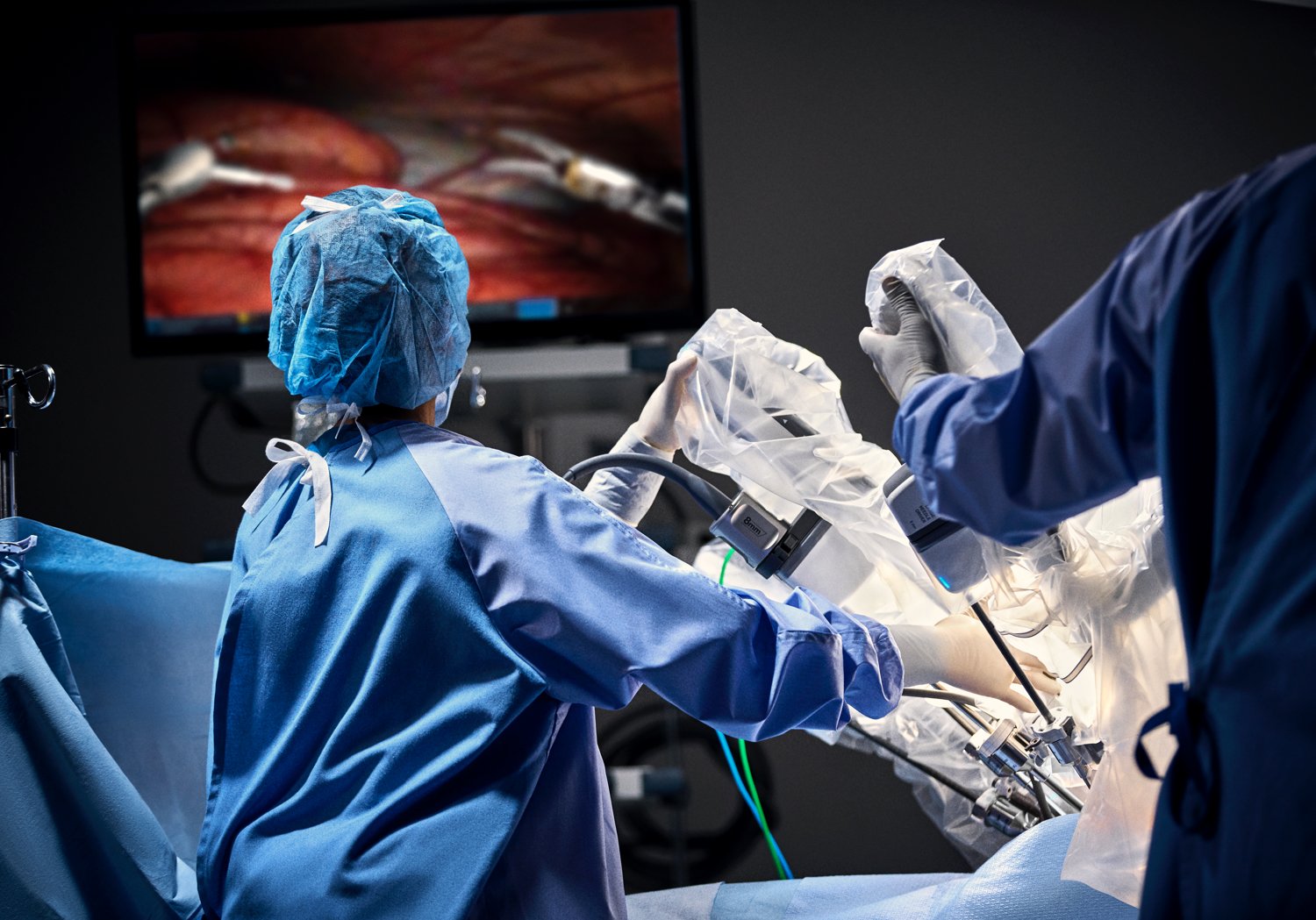Before starting, a confession is in order: Over the seven years that I've been a shareholder of Intuitive Surgical (ISRG 0.57%), there was a time that I actually sold some of the stock. My reasoning was simple: I was worried the surgical robots were being pushed into service for procedures where they might actually be doing more harm than good.

Image source: Getty Images
In the time since that decision, that worry is still present, but it's been thoroughly overshadowed by what I see as enormously captivating characteristics that make it a "buy-and-never-sell" part of my own family's portfolio.
Here are the four biggest:
1. A mission worth fighting for
Over the years, I've come to see a company's mission statement as one of the easiest proxies for figuring out if I want to invest in it. Of course, they don't tell the whole story, and due diligence doesn't end after a few sentences. But from my experience, the best mission statements have three things in common:
- Simple: An employee could reference the statement to help them make a difficult but crucial business decision.
- Inspirational: For a company to truly motivate employees and customers, they need to have a purpose that goes far beyond just making money.
- Optionable: There needs to be more than one viable path for the company to fulfill its mission. Otherwise, it is extremely vulnerable to disruption.
Intuitive Surgical's mission statement is: "[T]o extend the benefits of minimally invasive surgery to those patients who can and should benefit from it."
That is a very simple and inspirational statement. Who wouldn't want better surgical outcomes for hospital patients? And even more, who wouldn't want to see those benefits extend to everyone who can and should get them?
The third point -- about optionality -- I'll cover in the third point below, but suffice it to say that there are many ways that Intuitive Surgical can successfully fulfill its mission in the coming years.
2. A moat provided by high switching costs
Often times, when investors think of "high switching costs," they think of folks using telephone plans that have high costs for getting out of a multi-year plan or -- in times of yore -- having to give up their phone number.
But high switching costs have many forms, and I believe many hospitals would be loath to transition away from Intuitive's daVinci as the standard bearer for robotic surgery.
Not only do these hospitals fork over more than $1 million for their machines, but their doctors have thousands of hours logged practicing on them. Those hours are expensive, and create an enormous incentive to stay within the Intuitive ecosystem. With 4,149 systems installed worldwide, I believe this provides a powerful moat for investors.
3. Multiple futures
Otherwise referred to as "optionality" above, multiple futures refers to the fact that Intuitive Surgical has lots of ways to successfully -- and profitably -- fulfill its mission of bringing minimally invasive surgery to the masses.
It's as simple as trial and error. As more and more doctors tinker with the daVinci for new procedures, and as the company comes out with ever more versions of its platform, there's a high probability of "hitting" a procedure that meaningfully moves the company's revenue needle. While most will fall by the wayside, all it takes is finding a few procedures every ten years that the daVinci can dramatically improve the outcomes for and the company can continue to grow.
Four years ago things looked bleak. The company's base of gynecological procedures were being called into question, and growth in urology was moderating. Without an obvious new procedure on the horizon, many wondered if the company was fading into the sunset.
Here's what's happened with procedure growth since.
Procedure Growth at Intuitive Surgical.
Image source: Infogram.
With the onset of hernia and colorectal procedures using the new Xi system, the company has once again found a huge growth driver. While I don't know what the next big procedure will be, I have faith that continued tinkering -- both by doctors and those working for Intuitive -- will yield more instances were the robots can improve surgical outcomes.
4. A rock-solid balance sheet
Back when the company ran into troubles four years ago, the strength of its balance sheet was paramount. While earnings fell off a cliff and far fewer new systems were sold, the company was never in danger of going bankrupt. It held absolutely no long-term debt, and benefited from a powerful razor-and-blades model.
Since then, it has been an absolute cash machine.
Intuitive's Solid Balance Sheet.
Image source: Infogram.
And it's worth noting the only reason the cash balance fell was management's decision to repurchase $2 billion of the company's stock. Without that, the war chest would be sitting at over $5 billion today. Either way, with no long-term debt to speak of, the company will be on solid footing when the next crisis -- whether macro or company-specific -- arises.
So there you have it, those are the four reasons why I own Intuitive Surgical. Currently, it occupies just under 4% of my real-life holdings. While the stock certainly isn't cheap, I believe it's always a good time to open a small starter position, and add to it at better and better price points over time.






